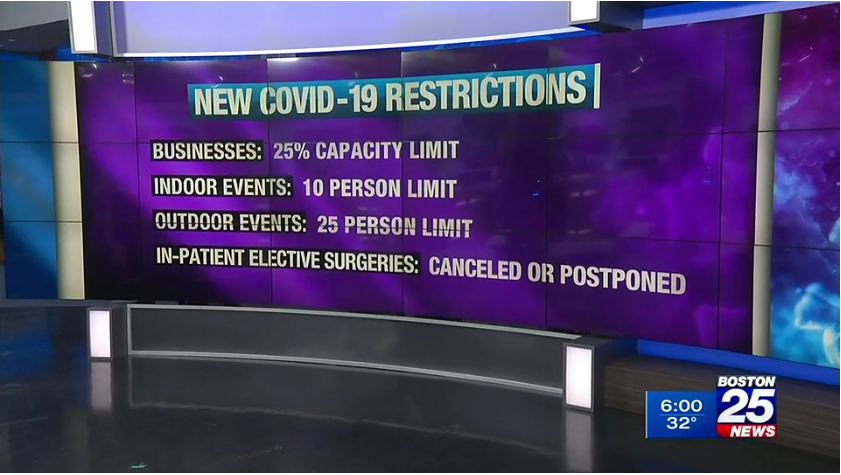Elective surgeries are now on hold as part of a wave of statewide restrictions aimed at easing the burden on hospitals whose beds are quickly filling with COVID-19 patients. Michael Gibson, MD (Interventional Cardiology, BIDMC) noted that hospitals are very full of COVID patients currently.
Boston 25 – December 26, 2020
Elective surgeries on pause due to surge

BOSTON — Elective surgeries are now on hold as part of a wave of statewide restrictions aimed at easing the burden on hospitals whose beds are quickly filling with COVID-19 patients.
“The beds are tight and the staffing is even tighter,” said Dr. Saul Weingart, the chief medical officer at Tufts Medical Center.
As of Wednesday, state data showed hospitals in Boston have just 15% of intensive care unit beds available. In northeastern Massachusetts there are just 10% of beds available.
“We’ve taken this quite seriously and, effective about two weeks ago, began to ramp down on elective procedures that would require an in-patient bed,” Dr. Weingart said.
The seven-day average of patients in hospitals rose 46% in four weeks, according to the state’s Department of Public Health.
“Hospitals are very full with COVID patients, and we need to make room throughout the hospitals for those who are sick or may become, quickly, very sick,” said Michael Gibson a cardiologist at Beth Israel Deaconess Medical Center.
Mass. Gov. Charlie Baker recently announced restrictions on lucrative elective surgeries effective Saturday. Those restrictions were put in place so hospitals would have additional space through the surge in COVID-19 cases. This represents the second such ban since March.
“Hospitals run at a very tight margin, and it’s important that we maintain our volume of care,” Dr. Weingart said.
Local hospitals are preparing for the possibility of a lower reimbursement from the federal government and states, Dr. Weingart added.
“But we are just going to do what we need to do to take care of our community,” he said.
Some procedures that may be considered elective are plastic surgery, or elective hip or knee replacements, Dr. Weingart said. Experts said that it’s best to call your doctor’s office before postponing a surgery that may not need to be canceled.
“Any case can be escalated and reviewed and taken forward if there is a pretty powerful medical reason for that,” Dr. Weingart explained.
The emergency order barring elective procedures is in place for at least two weeks, according to the governor.

